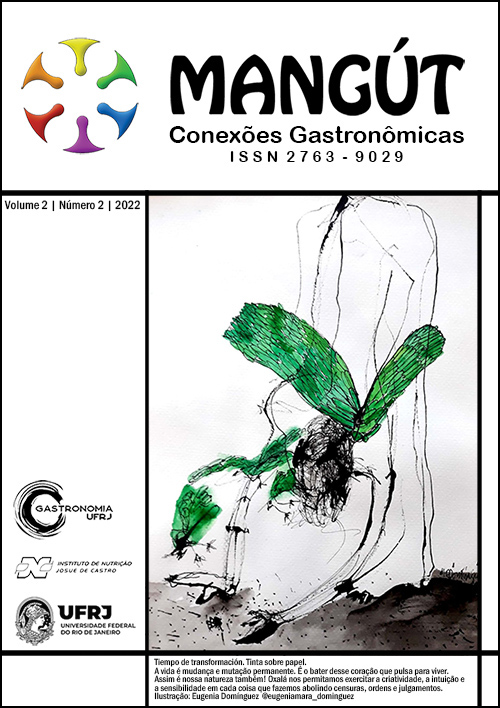Gastronomy and environmental education: convergences and challenges for the higher education of gastronomers
DOI:
https://doi.org/10.70051/mangt.v2i2.54933Keywords:
Gastronomy, Higher Education, Environmental Education, Liberated Gastronomy, Environment,Abstract
This theoretical essay proposes to present an analysis from the social and environmental dimensions of food and its convergences with the process of higher education (academic/technological) of gastronomes and gastronomes. Based on a theoretical framework that seeks to reconnect gastronomy (as a multidisciplinary area of knowledge) and its socio-environmental importance, passing through possible future scenarios for an emancipation of gastronomy (that favors the development of local actions focused on traditional knowledge and knowledge / ancestors and sociobiodiversity), we seek to endorse Environmental Education (EE) as a fundamentally important instrument capable of promoting the necessary harmony between theoretical, critical and practical knowledge, and of building gastronomic education in line with current demands. It is in this sense that the study is also dedicated to identifying, in line with the themes above, the challenges of teaching gastronomy in the face of the contemporary global socio-environmental crisis, which is largely related to production, distribution, marketing and consumption. of food.
Downloads
Published
Issue
Section
License
Copyright (c) 2023 Carlos Nunes Pereira

This work is licensed under a Creative Commons Attribution 4.0 International License.
Autores que publicam nesta revista concordam com os seguintes termos:
- Autores mantém os direitos autorais e concedem à revista o direito de primeira publicação, com o trabalho simultaneamente licenciado sob a Licença Creative Commons Attribution que permite o compartilhamento do trabalho com reconhecimento da autoria e publicação inicial nesta revista.
- Autores têm autorização para assumir contratos adicionais separadamente, para distribuição não-exclusiva da versão do trabalho publicada nesta revista (ex.: publicar em repositório institucional ou como capítulo de livro), com reconhecimento de autoria e publicação inicial nesta revista.
- Autores têm permissão e são estimulados a publicar e distribuir seu trabalho online (ex.: em repositórios institucionais ou na sua página pessoal) a qualquer ponto antes ou durante o processo editorial, já que isso pode gerar alterações produtivas, bem como aumentar o impacto e a citação do trabalho publicado (Veja O Efeito do Acesso Livre).



